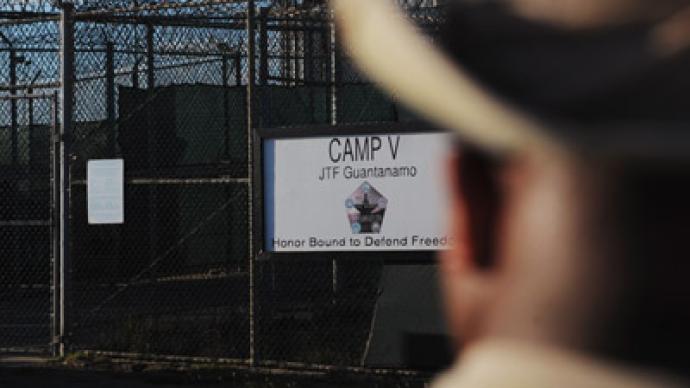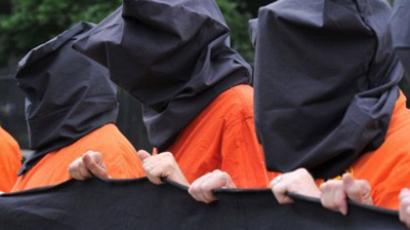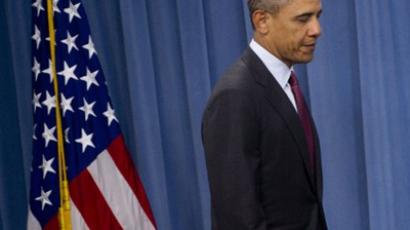Virginia votes to refuse NDAA

Although Congress approved this year’s National Defense Authorization Act, lawmakers on another level continue to find faults with its nasty detainment provisions. Virginia is now the latest state to consider laws that nix some of the NDAA.
When US President Barack Obama signed his name to the National Defense Authorization Act for Fiscal Year 2012, he authorized the US military to detain and torture anyone on Earth — Americans included — without charge. Opposition was widespread even before the commander-in-chief put pen to paper, but critics are continuing to condemn the legislation only two months after Obama approved it. So weary of the NDAA are lawmakers in Virginia, in fact, that a recent vote within the state’s House of Delegates led to the passing of a counter-act that will keep those detainment provisions out of VA.A recent meeting of lawmakers in the lower house of the Virginia General Assembly yielded an impressive 96-to-4 approval for HB 1160, a bill that will ban state officials from abiding by some elements of the NDAA. Should the act see similar support in the state’s Senate, Virginia will be spared from the detainment provisions that have garnered opposition against Congress and the Obama White House over the NDAA’s passing.Under the Virginia law-in-waiting, state agents are forbidden from aiding “an agency of the armed forces of the United States in the conduct of the investigation, prosecution or detention of any citizen pursuant to 50 U.S.C. § 1541 as provided by the National Defense Authorization Act for Fiscal Year 2012.”The Virginia bill would specifically see to it that Section 1021 of the NDAA is made illegal, which, per President Obama’s approval, legitimizes the detainment of any alleged terrorist, including Americans, that are believed to have committed a “belligerent act” or have supported “hostilities,”Bob Marshall, a 20-year veteran of the House of Delegates and author of the legislation, tells The New America that his "oath to uphold the U.S. and Virginia Constitutions” prompted him to pen HB 1160, which he feels corrects the unconstitutional provisions put in the NDAA."They say this law [the NDAA] is designed to fight terrorists. You don't defeat terrorists by adopting their tactics,” says Marshall. "I will be faithful to my calling to stand against these predators who would sell their birthright for a mess of pottage," he adds.Marshall’s bill comes after a call-to-action from the Tenth Amendment Center think tank, which is asking other states to consider composing legislations that will outlaw the NDAA across the US. "The very fact that so many legal experts come up with so many diverse readings of those NDAA sections should give us all pause,” Tenth Amendment Center communication’s director, Mike Maherry, adds to The New American, “The language is vague and undefined. Are we really going to trust the judgment and good intentions of Pres. Obama or whichever Republican sits in the White House to protect us? That seems like a pretty bad plan."When President Obama approved the NDAA on December 31, 2011, he attacked a signing statement in which he insisted that he would not abide by Section 1021, saying he “will not authorize the indefinite military detention without trial of American citizens.” Since the bill was approved, however, the US Supreme Court has seen at least one case in which a detained person, in that instanced a Yemeni national, was kept detained under the NDAA.Others have called Obama’s signing statement meaningless when put in the grand scope of things. American Civil Liberties Union Executive Director Anthony Romero told The Atlantic last month, "The statute is particularly dangerous because it has no temporal or geographic limitations, and can be used by this and future presidents to militarily detain people captured far from any battlefield.”“Any hope that the Obama administration would roll back the constitutional excesses of George Bush in the war on terror was extinguished today,” Romero added upon the president’s signing. Across the country in Washington State, five Republican lawmakers recently proposed a bill that would can the NDAA detainment provisions in their own jurisdiction. “Winning the war against terror cannot come at the great expense of eviscerating the unalienable rights recognized by and protected in the United States Constitution,” its authors acknowledged.















